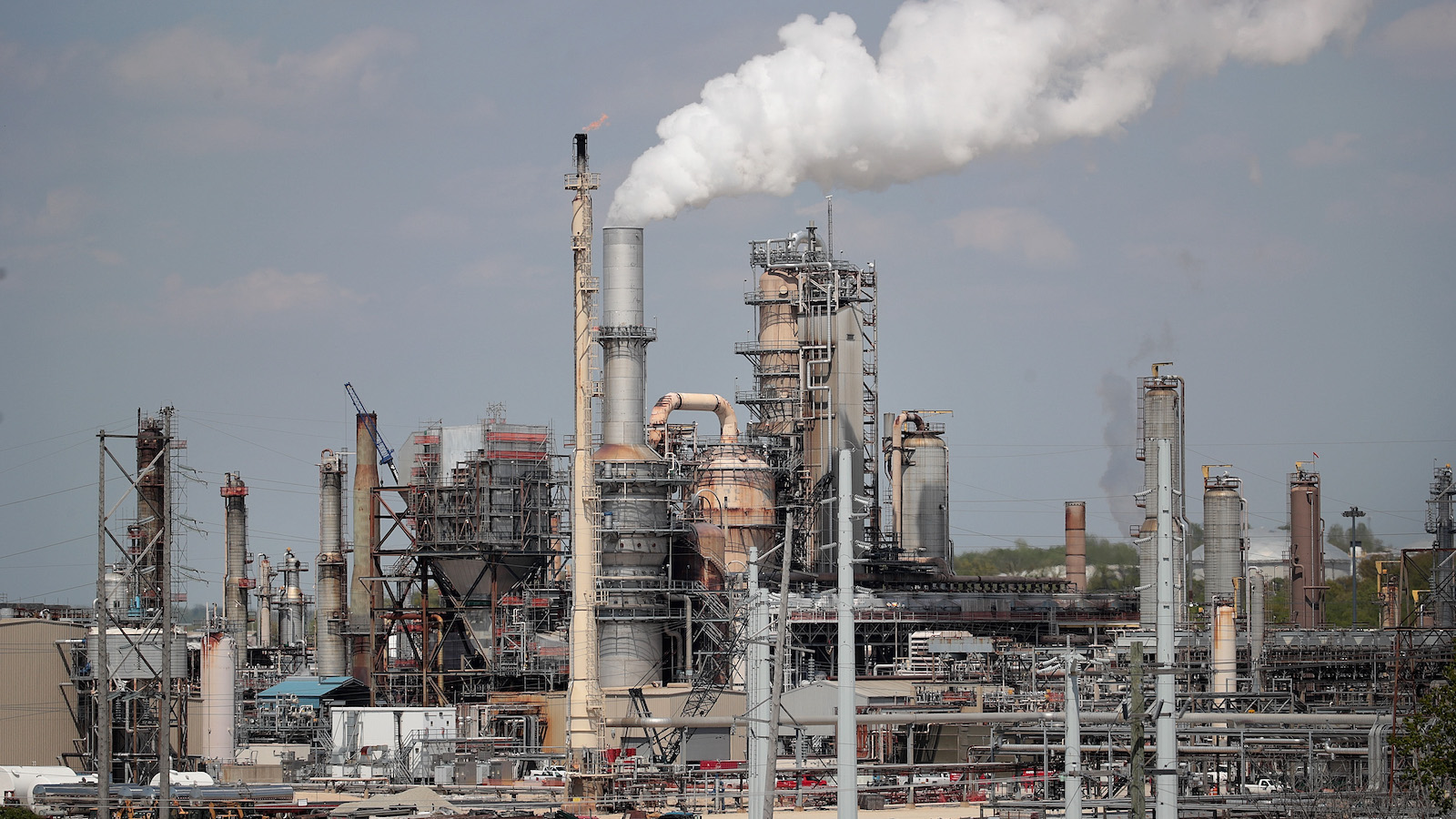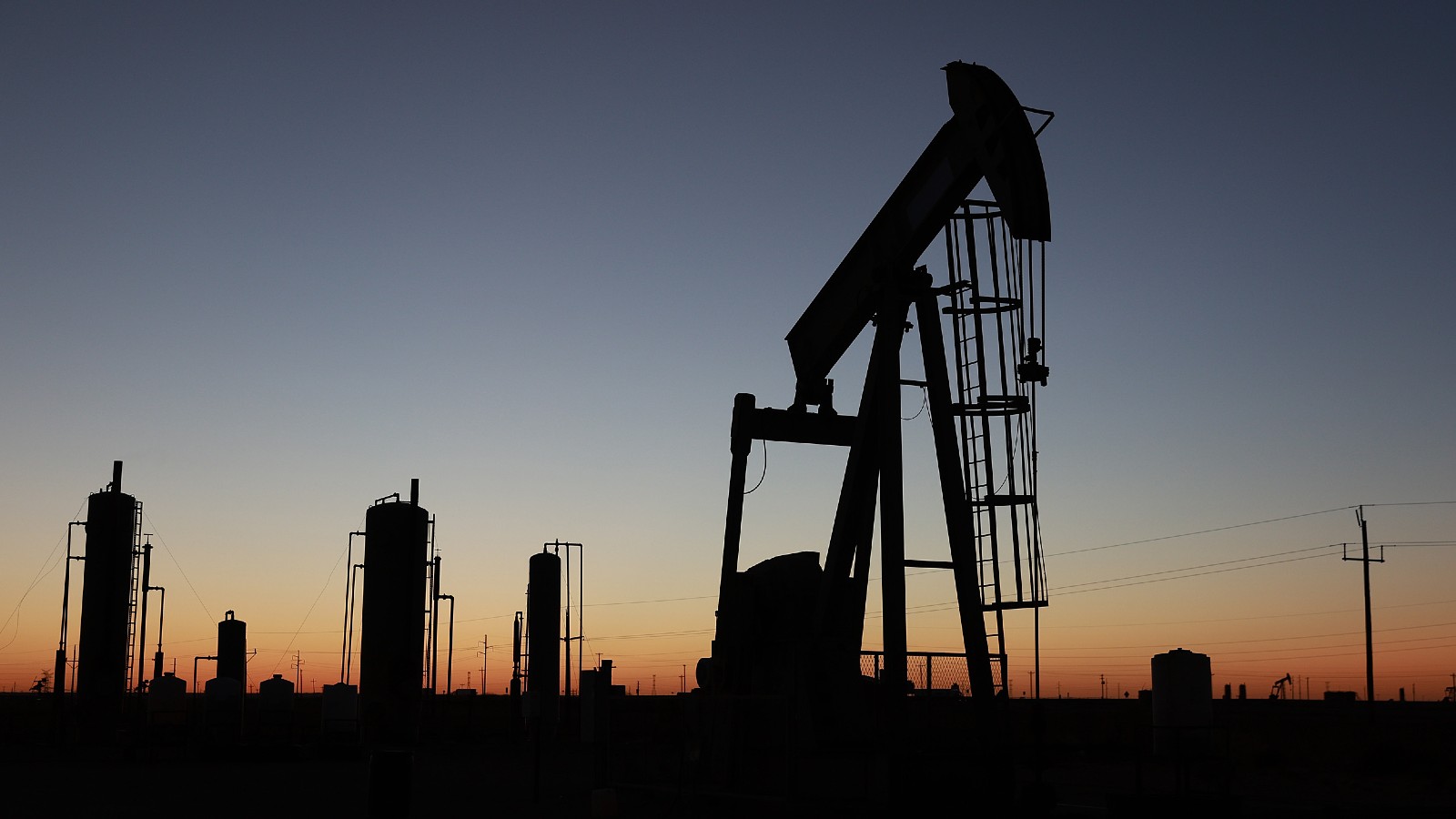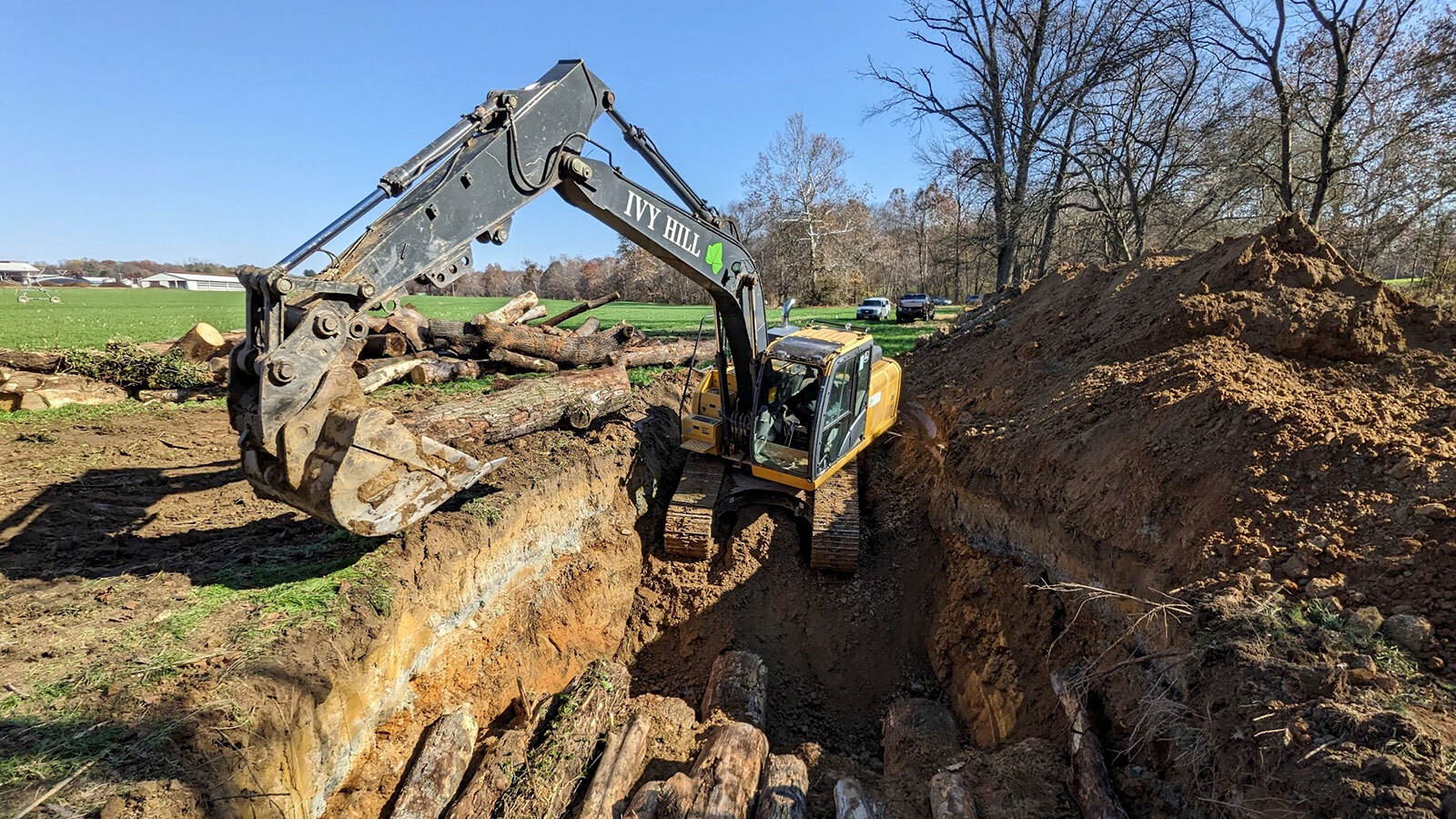This coverage is made possible through the following partnerships: grist and WBEZa public radio station serving the Chicago metropolitan area.
Executives from grain processing giant Archer Daniels Midland Co. watched as Verlyn Rosenberger, 88, took to the stage at last week’s Decatur City Council meeting. This was the first meeting since she and the rest of the central Illinois community learned of a second leak at ADM’s carbon sequestration facility, located directly below Lake Decatur, a major source of drinking water. .
“Just because you can sequester CO2 doesn’t mean you should,” the former elementary school teacher told the city council. “Pipes will eventually leak.”
ADM’s facility in central Illinois is the first commercial carbon sequestration operation permitted in the country and is at the forefront of a rapidly growing multi-billion dollar carbon sequestration operation. Carbon capture and storageor CCS, is an industry committed to permanently sequestering global warming-causing carbon dioxide deep underground.
This emerging technology is a cornerstone of government strategies to reduce fossil fuel emissions and meet climate goals. Meanwhile, the Biden administration’s centerpiece climate bill, the Inflation Control Act, dramatically increases industrial subsidies and tax credits, sparking a CCS gold rush.
Currently, there are only four carbon sequestration wells operating in the United States (two each in Illinois and Indiana), but more are planned to be built. In Illinois, three proposed pipelines and 22 wells are undergoing review by state and federal regulators, making the landscape geographically particularly suitable for CCS. The U.S. Environmental Protection Agency is reviewing 150 different applications across the country.
However, if a leak occurs due to CCS operation, it can pose a significant risk to water resources. That’s because pressurized carbon dioxide stored underground can leak or propel brine trapped in brine reservoirs, which are typically used for permanent storage. Leaks can cause heavy metal contamination and potentially lower pH levels, all of which can make the water undrinkable. This is what worries critics of carbon capture, who worry that it is solving one problem by creating another.
Juan Pablo Ramírez-Franco / Grist
The public learned of the breach at ADM’s Decatur site in September after E&E News, an energy and environmental magazine, reported on it. Additional EPA-mandated testing revealed a second leak later that month. EPA has confirmed that these leaks do not pose a threat to water sources. Still, they raise concerns about whether more leaks are likely to occur, whether the public has a right to know when a leak will occur, and whether CCS technology is really a viable climate change solution. .
Officials from Chicago-based ADM spoke at the Decatur City Council meeting shortly after Rosenberger. They tried to allay her concerns. “We wouldn’t do this if we didn’t believe it was safe,” said Greg Webb, ADM’s vice president of state government relations.
But ADM kept local and state authorities in the dark about the initial breach for months. They discovered it in March, five months after discovering corrosion in the isolation well’s piping. However, neither leak was disclosed because the company applied for an easement with the city of Decatur this spring to expand its operations. The company remained silent about the breach despite participating in extensive negotiations in April and May over the SAFE CCS Act, the state’s first CCS regulation, multiple people said. .
As a result, when Illinois Governor J.B. Pritzker signed these CCS regulations at ADM’s Decatur facility in July, his office admitted that he was unaware of a leak that occurred more than 5,000 feet below the seats. Ta.
“We thought we were negotiating in good faith with ADM,” bill sponsor and state Sen. Laura Fine, a Democrat, said in a statement. “When negotiating complex legislation, we expect all parties to be proactive and transparent to ensure effective legislation.”
It is unclear whether ADM was required by law to report the breach earlier. The company’s permit requires it to notify state and local authorities only in the event of a “significant” or “serious” emergency. EPA would not comment on whether ADM is required to disclose, and neither EPA nor ADM would confirm whether the two Decatur leaks constituted a “minor” emergency.
“The developments occurred at a depth of approximately 5,000 feet. They did not pose a threat to surface or groundwater or public health. For these reasons, no additional notifications were issued,” an ADM spokesperson said in a statement. Ta.”
That’s little consolation to Jenny Cassel, a senior attorney at Earthjustice, a nonprofit environmental law firm.
“It’s a little scary,” Cassel said. “Because if a operator actually makes a bad decision and there is a real problem, not only will local officials not know about it, but EPA is not going to know about it. ’cause it seems to be causing problems for what happened here. ”
The Illinois Clean Jobs Coalition praised the signing of the regulatory bill earlier this summer and called ADM’s decision to hide the March 2024 breach from the public “unacceptable and dangerous.”
David Horn, a City Council member and biology professor at Millikin University in Decatur, said the city has been blindsided. “This information was substantive and relevant information that could impact the terms of the easement, which was ultimately signed in May 2024,” he said, adding that the delay in disclosure was It added that it calls into question the long-term safety of CCS and the capabilities of CCS. Urged EPA to protect water against future CCS incidents.

Illinois Legislature puts brakes on carbon capture boom
ADM waited until July 31, more than three months after the leak was discovered, to notify EPA of the leak. The EPA alerted a handful of local and state authorities and ordered the company to conduct further testing. It also issued a notice of alleged violation, citing the movement of CO2 and other fluids beyond “authorized areas” and the company’s failure to comply with its own monitoring, emergency response and remediation plans.
However, the violations were not made public until September 13th. E&E News first reported the leak.
Two weeks later, ADM notified EPA that it had discovered a second suspected leak. For the first time since then, CO2 injection into the well has been temporarily halted.
Councilman Horne says that’s not enough.
“The ADM company was aware of the breach in March, but we were not aware of it until September,” Horn said. “The reality is that the city of Decatur, its residents, and its decision-makers have been at a disadvantage for months.”
Meanwhile, the city of Decatur has contracted with an environmental attorney. They have not yet taken legal action.
Central Illinois is becoming a national hotspot for the nascent CCS industry thanks to the Mount Simon Sandstone, a deep saline layer of porous rock that is particularly suited to storing CO2. It forms the basis of much of Illinois and drains into parts of Indiana and Kentucky. The storage capacity is estimated to be up to 150 billion tons of CO2, making it the largest reservoir of its kind in the Midwest.

Texas sees a ‘bonanza’ in carbon storage market
However, there are concerns that pumping CO2 into saline reservoirs near groundwater risks pushing pressurized CO2 and saline water into those resources, which could pose further pollution risks. “Salt water is pretty nasty,” says Dominic Digilio, a former geoscientist with the EPA’s Office of Research and Development. “It contains very high concentrations of salts, heavy metals, sometimes volatile organic compounds, and radionuclides such as radium.”
Horne says the Decatur leak should serve as a wake-up call not just for the city but for the region, as more wells are planned in Illinois. He is particularly concerned about future wells being built near the Mahomet Aquifer, which overlies the Mount Simon Sandstone Formation, a major source of drinking water in east-central Illinois.
According to the Prairie Institute, nearly 1 million people depend on the Mahomet Aquifer for drinking water. In 2015, the EPA designated underground reservoirs as “sole sources of water.” This means that there is no alternative drinking water source if groundwater becomes contaminated. When it comes to the Mahomet Aquifer, “we can’t afford to be wrong,” Horn said.
Andrew Wren, director of climate policy for the Champaign-based environmental group Prairie Rivers Network, said rural Illinois counties should protect themselves from future carbon leaks as the CCS boom arrives. He said that he is stepping up efforts to achieve this goal.
DeWitt County, 30 minutes north of Decatur, passed a carbon sequestration ban last year. West of Decatur, Sangamon County previously expanded an existing moratorium on underground transportation and storage of CO2. And just last week, Champaign County, just east of Decatur, advanced an ordinance that would consider a 12-month moratorium on CCS.

Wooden vaulting: A simple way to combat climate change that you’ve probably never heard of
Lane said his organization would like to see all 14 counties that overlap with the Mahomet Aquifer impose such a ban.
In the meantime, his hope is that the state Legislature will finish what Illinois counties started. Two related bills introduced earlier this year would fill regulatory gaps left by the CCS bill that Pritzker signed this summer. This bill would immediately prohibit carbon sequestration in and around the Mahomet Aquifer.
“My community and many surrounding areas rely on the Mahomet Aquifer to provide clean drinking water, support agriculture, and sustain industrial operations,” said bill sponsor and state senator. Democrat Paul Faraci said in a statement. “Protecting the health and livelihoods of our residents and the industries that rely on our aquifers must remain our top priority.
When the Decatur City Council adjourned last week, Ms. Rosenberger helped her husband, Paul Rosenberger, put on his coat. A line of ADM workers behind her passed and then remained in the parliament chamber. “I’m not afraid of them,” Rosenberger said as she drove her husband away.
“We haven’t changed anything yet,” Rosenberger said. “But I think you probably can.”







